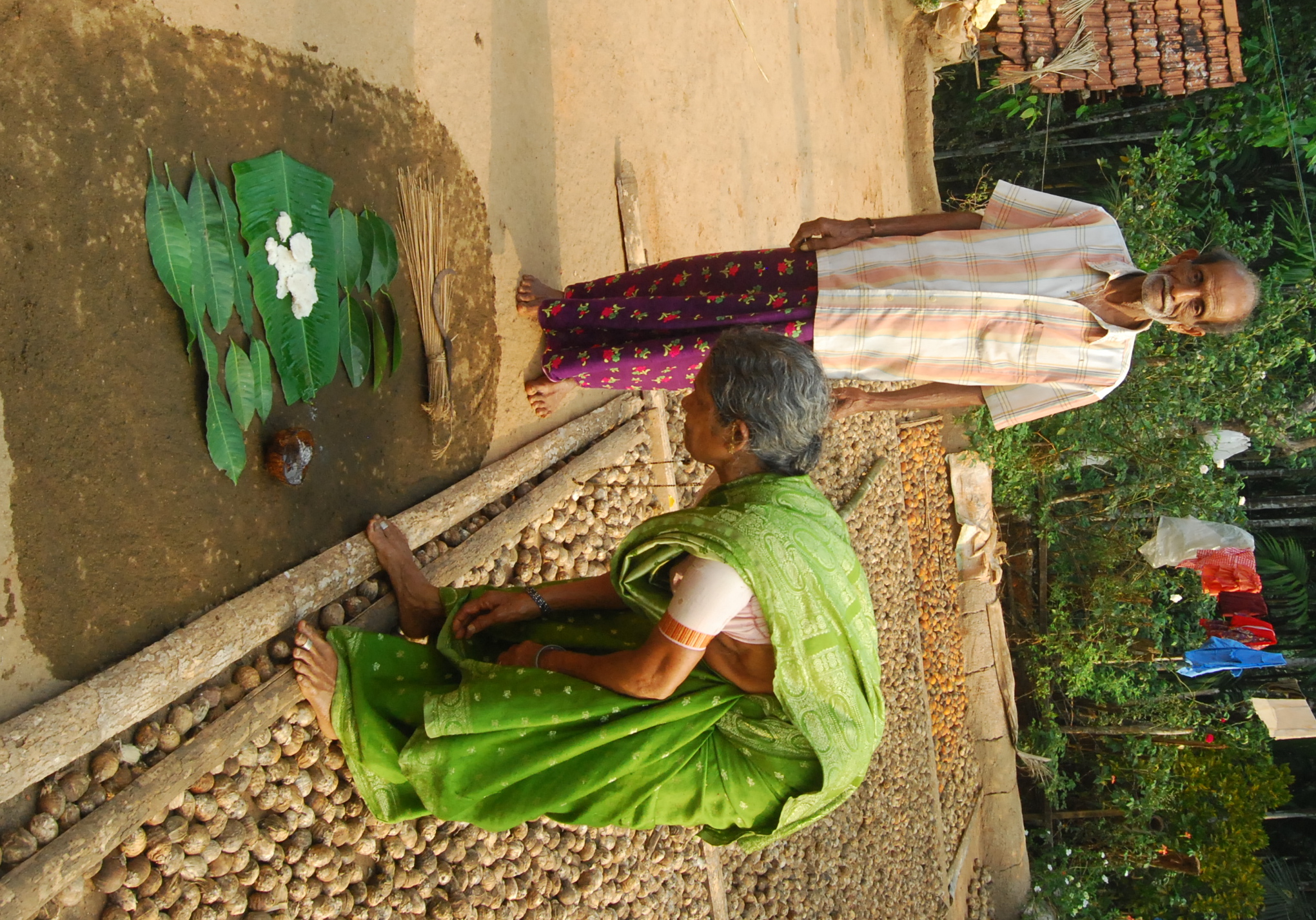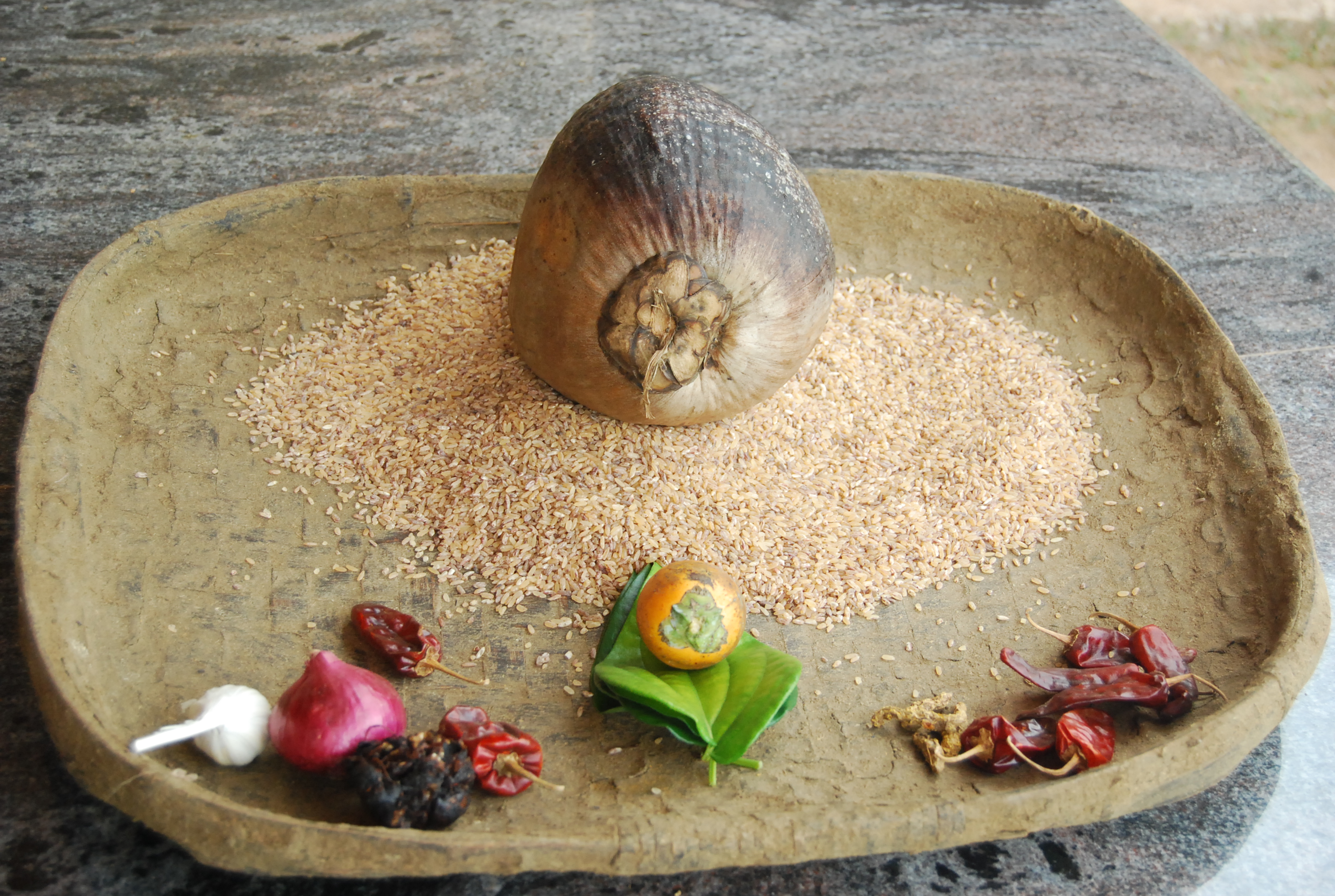Keddaso - Festival Of Worshipping Mother Earth on:
[Wikipedia]
[Google]
[Amazon]
 Keddaso also spelled Keddasa (
Keddaso also spelled Keddasa (

 Keddaso also spelled Keddasa (
Keddaso also spelled Keddasa (Tulu
Tulu may refer to:
People
*Derartu Tulu (born 1972), Ethiopian long-distance runner
*Walid Yacoubou (born 1997), Togolese footballer nicknamed "Tulu"
India
*Tulu calendar, traditional solar calendar generally used in the regions of southwest Kar ...
: ''keḍḍasa ಕೆಡ್ಡಸ'' ), or Bhumi Puje, is popularly known as the "festival of worshipping Mother Earth" in the Tulu Nadu
Tulunad or Tulu Nadu, also called Bermere sristi or Parashurama Srishti, is a region and a Proposed states and union territories of India#Karnataka, proposed state on the southwestern coast of India. The Tulu people, known as 'Tuluva' (plural ...
region of South India
South India, also known as Dakshina Bharata or Peninsular India, consists of the peninsular southern part of India. It encompasses the Indian states of Andhra Pradesh, Karnataka, Kerala, Tamil Nadu, and Telangana, as well as the union territo ...
. Mother Earth (Bhoomi Devi) gets menstruate and the day is celebrated holistically in Tulunad in the name of ‘Keddasa’. This is an important four-day fertility worship celebrated in the closing days of Tulu
Tulu may refer to:
People
*Derartu Tulu (born 1972), Ethiopian long-distance runner
*Walid Yacoubou (born 1997), Togolese footballer nicknamed "Tulu"
India
*Tulu calendar, traditional solar calendar generally used in the regions of southwest Kar ...
month Ponny (Gregorian month February). This festival shows the environmental awareness of the people residing at that region.
Rituals
Keddasa normally falls in the month of February and is celebrated over three days named Keddasa, Nadu Keddasa and Kade Keddasa. This celebrated in the winter of this region, where its believed that Bhoomi Devi gets menstruated and becomes fertile for farming. For three days, the Goddess undergoes Ashaucha and takes rest. People in the region do not perform any farming activity to give the Mother, who is also same as mother Earth, rest According to popular belief as women menstruate, which is a sign of fertility, so also Mother Earth menstruates. So all three days of the festival are considered to be the menstruating period of Mother Earth. During the festival all agricultural operations remain suspended. As inHindu
Hindus (; ) are people who religiously adhere to Hinduism.Jeffery D. Long (2007), A Vision for Hinduism, IB Tauris, , pages 35–37 Historically, the term has also been used as a geographical, cultural, and later religious identifier for ...
homes menstruating women remain secluded and do not even touch anything and are given full rest, so also the Mother Earth is given full rest for three days for which all agricultural operations are stopped. During Kade Keddasa an elderly lady of the family performs the ritual, where she makes Sarnadde; unique dish of Tulunad and plates it in front of Tulasi katte.
Early morning she wakes up and puts cow dung (ambi) around Tulsi katte and lights lamp. Along with it she keeps Kumkum, Shikakai in front of the katte. She pours coconut oil to the soil as a symbol that she is putting oil to mother earth, before she goes to bathe herself.
Shikai is kept based on the belief that mother earth bathes herself with Shikakai. After bath she comes back; puts Kumkum and haves Sarnadde that has been kept in a banana leaf.

Special food
During Keddasa, one more practice was prevalent was to have lentils like horse gram, green gram, driedcoconut
The coconut tree (''Cocos nucifera'') is a member of the palm tree family ( Arecaceae) and the only living species of the genus ''Cocos''. The term "coconut" (or the archaic "cocoanut") can refer to the whole coconut palm, the seed, or the ...
, rice and peanuts called as Kudu Ari. They were roasted and were given to all. This is because winter is the time when body needs lot of proteins and oil. These lentils would help the body be intact in working condition.
Hunting
The Arasu of the village went for Bonte (hunting) along with villagers. This in a way was to get rid of the animals that trouble the agricultural works and also for entertainment. To get a break from farming, Tuluvas made a practice of hunting during Keddasa.Keddasa Leppu
Nalike community, who traditionally perform Bhoota kola, visits and invites each and every house members as per their ''ajalu'' villages and calls for ''Keddasa Bonte'' (hunting). The eldest lady of family offers a big coconut, good quantity of rice, arecanut, betel leaves, chilly, garlic, onion, tamarind and other ingredients which are used for making the curry of the hunted prey. The calling Paddana is like this, ::Sōmavāra keḍḍasa, ::muṭṭune aṅgāra naḍu keḍḍasa ::budhavāra biripune ::paji kaḍpare balli ::unuṅgel polipyare balli, ::arasule bōnṭeṅg ::sarver ullāyanakulu pōvōḍuge. ::Valasāri majalḍ kūḍdu ::valasari dērdd pālejjār jappunaga ::uḷḷāldinakulu kaḍipi kan̄jin nīrḍ pāḍōdu. ::Ōḍuḍ kaḍevoḍu, kall ḍ roṭṭi pattavoḍu. ::Malla malla mr̥rgolu jattd barpa ::Kaṭṭa ijjāndi beḍi, kadi kaṭṭandina pagari, ::kaila kaḍela pattd ::ujjergon̄ji erpu ērpād ::illa bēttaḍit untondu ::murgoleg tāṇṭāvoḍu. ::Malla malla murgolen jayipoḍu. ::Eṅk ayita kebi, kār, kai, ::uppu, mun̄ci, puḷi koroḍuReferences
{{Festivals of Tulunadu Tulu language Culture of Tulu Nadu Religious festivals in India